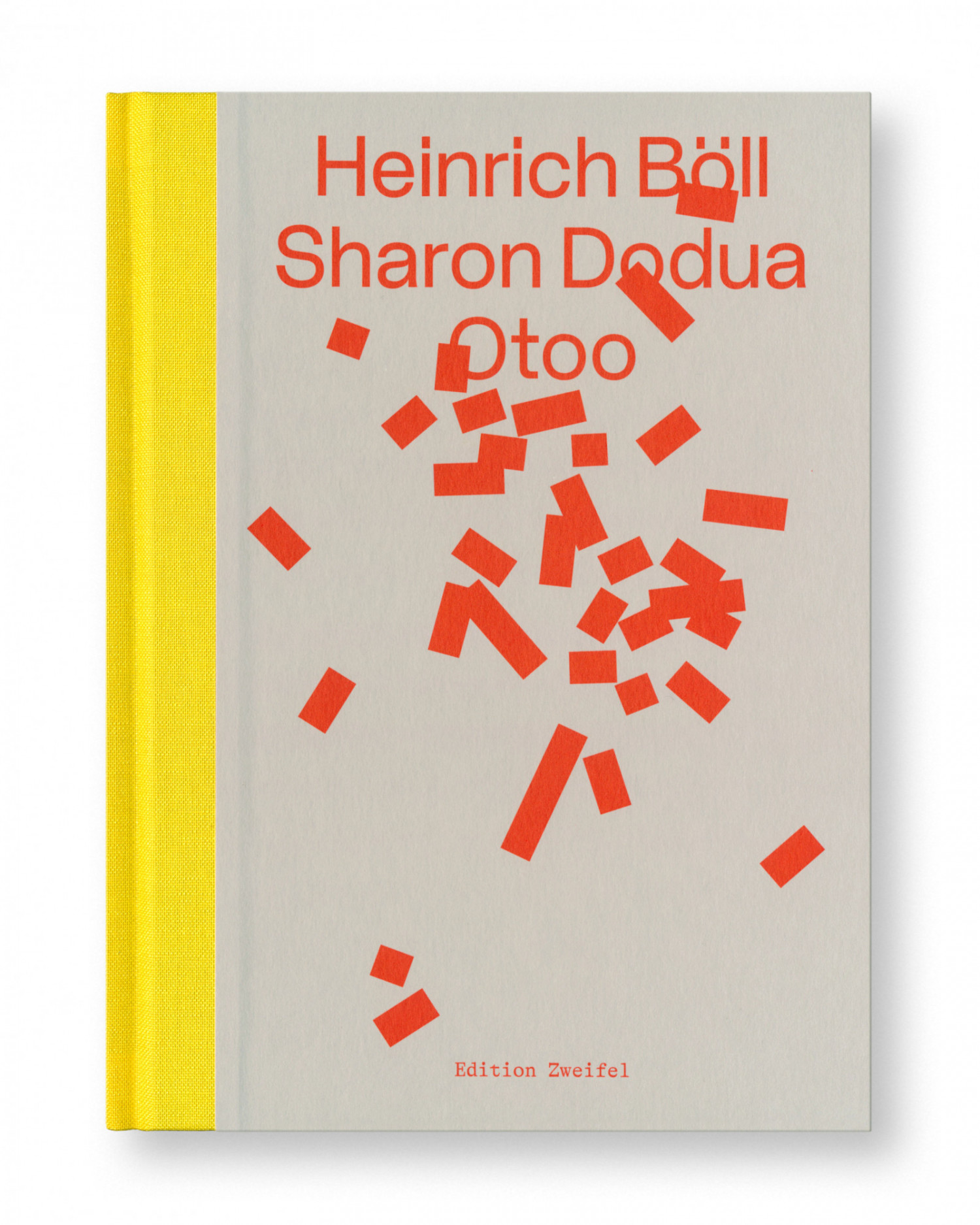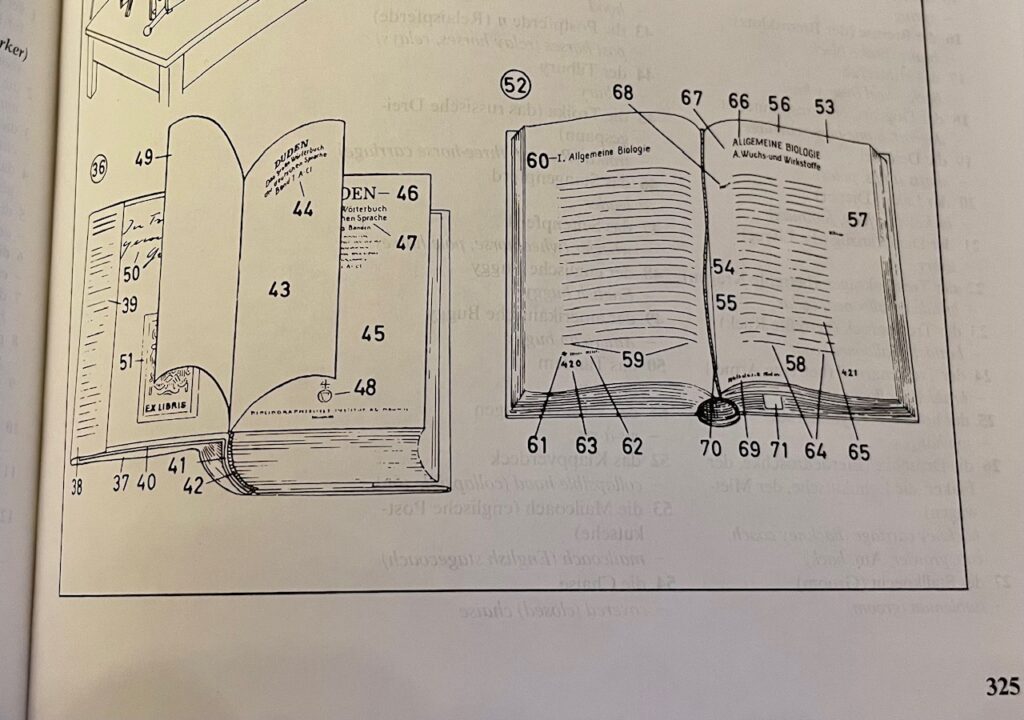
By Katy Derbyshire
This is a beautiful book combining a short satire by everyone’s1 favourite German 20th-century writer, reflections by one of my favourite 21st-century German writers, and lashings of typographical ginger beer.
Like me, Sharon Dodua Otoo read a bit of Böll for her German A-Level. In her case, it was his short story “Doktor Murkes gesammeltes Schweigen”.2 Fast-forward a couple of decades, and the editors Katharina Mevissen and Simon Wahlers wanted to publish an experimental essay working with graphic elements and the above story, and Sharon seemed like just the right essayist for the project. Which she was – and also wasn’t, and that only makes the book all the more interesting and thought-provoking.
She was just right because she already knew and loved Böll’s story, and obviously because she’s a talented, thoughtful and adventurous writer. And she wasn’t just right because what she eventually sent to the editors is less an essay and more of a collection of attempts, thoughts, quotes, blank spaces and silences. But who wants to read a straightforward essay about a satirical story, anyway?
First things first: the Böll story. I chuckled my way through it in an airport lounge.3 It’s the story of a young radio editor who collects snippets of silence, and also it’s about German postwar hypocrisy and the amusing vagaries of German grammar. It’s not madly sophisticated so it was definitely a good choice for A-Level reading material; some of the jokes are people’s silly names, some are crude listeners’ letters or freelancers getting drunk before noon. But it makes its point very well. For me, the secret hero is the nameless Techniker who cuts out and saves snippets of tape for Doktor Murke’s collection of silences.4

If we believe her written account in the book, Sharon Dodua Otoo set out to write a letter to Böll about the story, and failed. But then she failed better – and gave us a collection named “Schnipsel der Stille”: snippets of silence. Transcribed text messages, writing-diary entries, quotes from other Black writers about the power of silences, words and voices, considerations of quotes from Böll, a letter to the letter-writer in the story, about the West German government’s treatment of the children of Black GIs, thoughts on writers’ particular responsibility towards language and society… and all of it is fascinating.
Both parts are beautifully designed and typeset in multiple fonts, using black strips either covering certain words, like redacted secret-service documents, or replacing them like printed Dymo-labels. It is extremely simple and extremely effective. What I like best about it is that it’s suggested by the Böll story itself, which is all about tape – and then it goes further and further in Sharon’s section of the book, assuming new meanings. The book has pink tailbands and purple endpapers, with a yellow linen spine.5 It is a beautiful object.


So here’s what I would like: Imagine you were one of the few British teens doing a German A-Level today, and your teacher had you read this book. Wouldn’t that be a whole lot more relevant to your life than just Böll on his own? You’d get the requisite insight into postwar Germany for the curriculum, but you’d also read some Black German writers and some women to boot, you’d ask yourself questions about language and responsibility, you’d pick up a few ideas about the difficulties of the writing process, and you’d have a book that would stay in your memory and presumably on your shelves for decades to come. I know my copy will.
You can also read it if you don’t have to sit an exam.
- Especially Green politicians and Ireland-fans. The German Greens love him so much, they named their political foundation after him. Also, generations of Germans have gone on pilgrimages to Ireland in a vain attempt to rediscover for themselves the country Heinrich Böll was so crazy about that he bought a house on Achill Island, which is now a writers’ residency. When people tell me they’ve stayed there, they have a strange smile on their faces that I imagine to be a combination of nostalgia and discomfort over the apparently rather basic facilities. I don’t like to ask. ↩︎
- In my case, I can’t for the life of me work out what it must have been. Definitely something short and Wirtschaftswunder-related, though. ↩︎
- I like to get to the airport early, and I’m a fast reader. ↩︎
- My dad was a TV sound recordist. On that mythical day when I have time, I may well write some kind of treatise on German writers’ disdain for technicians, Daniel Kehlmann’s Fame being a case in point. ↩︎
- I looked these terms up in my Duden Oxford Bildwörterbuch, from which the terrible photos are taken. ↩︎